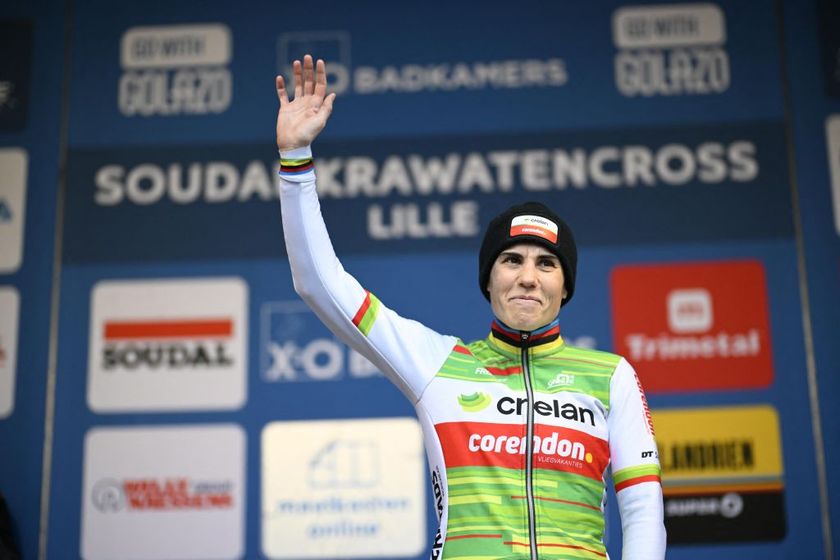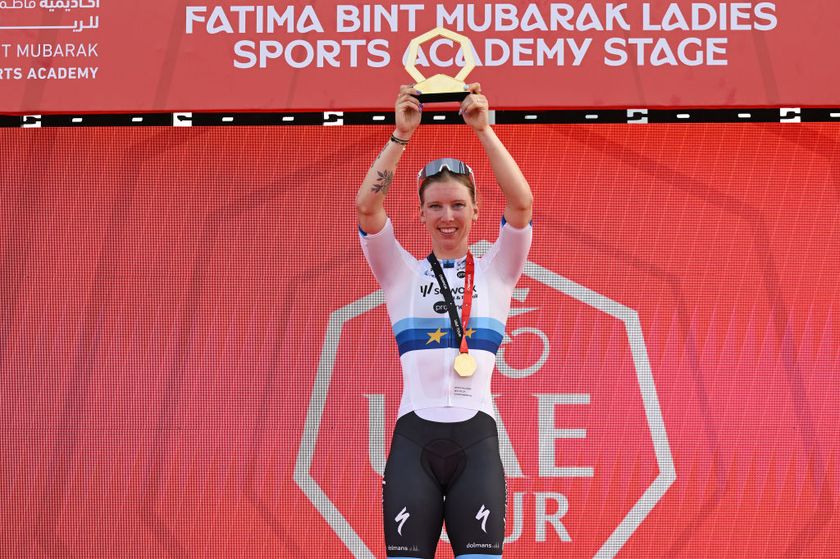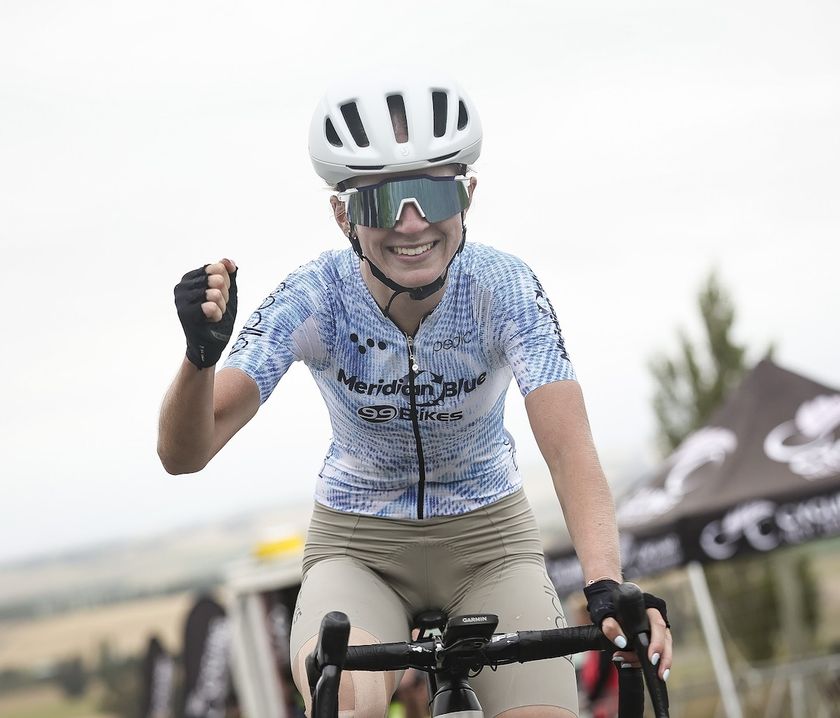Degenkolb ecstatic after taking first Giro d'Italia stage win
Argos-Shimano German digs deep in stage 5's uphill finale






Two years ago, while a first-year pro with HTC, one of German John Degenkolb's biggest early wins, and first in the WorldTour, came on an uphill finish in stage 2 of the Criterium du Dauphine. Fast forward two seasons and Degenkolb, now 24, used his same skills in the uphill finish at Matera to clinch Argos-Shimano's - and his - first-ever stage victory in the Giro d'Italia on Wednesday.
Today's victory was also Germany's first Giro stage win since Andrei Greipel won - curiously enough, also for HTC - in 2010. And in Degenkolb's case, there has been quite a lot of water under the bridge since then, too: the German has taken five stage wins in the 2012 Vuelta a España, where he was the almost undisputed king of the sprints, and now has 19 professional wins to his name. He was also a very impressive fourth in the world championships last year on a finishing circuit in the Ardennes with a lot of similarities to today's stage - a long climb and then a flatter section leading to the finish, although today's finish had an 800-metre uphill grind, too.
Although there have been some near misses this year for Degenkolb, today's victory was also his first of 2013 and it was taken in superb style. Lightning-fast reactions enabled the German to dodge a crash that saw Argos-Shimano teammate Luka Mezgec slam into the barriers and then blast away for a solo victory at the line after what was effectively an 800-metre solo sprint.
"It was extraordinarily tough," Degenkolb said. "That crash was one that we could almost see coming, the last four kilometres after the climb" - which ruled out a fairly high percentage of the sprinters, such as Mark Cavendish - "were so incredibly fast."
"I was just behind the crash, and I think it was pretty slippery and wet, they went a bit too fast in the second last corner and luckily I was just a little bit behind so I could brake and then come past."
"I was out of my pedals, then back in my pedals and then accelerated.
Outpowering Bardiani's Marco Canola with around 400 metres to go, Degenkolb said, "I tried to sprint and it was really hard. My lactate levels were going crazy."
Get The Leadout Newsletter
The latest race content, interviews, features, reviews and expert buying guides, direct to your inbox!
"Those last 800 metres were really tough," Degenkolb said. "I just had to go all out and hope my strength lasted all the way."
Up until August last year, Degenkolb had not won in a Grand Tour, and now he has racked up six wins in the category in a little over nine months. Yet he says, curiously, that this year had not gone according to plan. He had to quit Tirreno because of muscle problems, then had another longish break to try and regain top condition after Paris-Roubaix, where he was 28th.
"For a sprinter or a Classics rider, every month or even every week that you don't win, it's like something's going a bit wrong," Degenkolb said. "You're always waiting for that next win, and so was the team, and I'm happy to have proved I can lead the squad again. By winning, I'm giving back my teammates something for all the help they give me."
For a team with very limited options for the GC in the Giro, a victory like Degenkolb's today effectively justifies Argos-Shimano's presence in the entire race. And for German cycling, which has had a very uneven last few years with a lot of races and teams lost, a Giro win is also very important.
"I think it's significant for our country that the new generation, guys like myself and Tony Martin or Marcel Kittel, get wins in a clean and transparent way," said Degenkolb, who has trained as a policeman and who holds the rank of Polizeimeister.
"We want to be idols for the generations to come and do a better job than the generation before us. I feel very responsible about that," Degenkolb said. And with wins like today's, he's certainly leading by example.
On a positive note, Degenkolb's teammate Luka Mezgec, who slammed into the barriers in the late race crash, turns out to be ok afterward according to his team.
Alasdair Fotheringham has been reporting on cycling since 1991. He has covered every Tour de France since 1992 bar one, as well as numerous other bike races of all shapes and sizes, ranging from the Olympic Games in 2008 to the now sadly defunct Subida a Urkiola hill climb in Spain. As well as working for Cyclingnews, he has also written for The Independent, The Guardian, ProCycling, The Express and Reuters.
Most Popular





